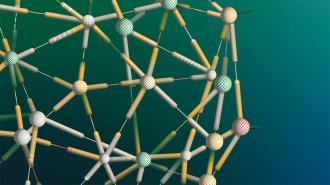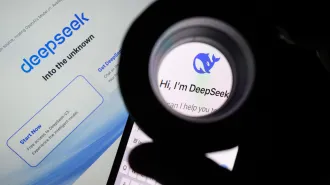Virtual Addicts
A relatively new brand of addiction could become a real career stopper for many of us. Especially because increasingly our jobs rely on partaking of the behavior—use of the Internet—to which the new breed of addicts have lost all control.
It would akin to a renowned sommelier suddenly becoming an alcoholic. That’s a job that would make kicking the habit problematic. A real-life Gregory House (the Vicodin-addicted physician on Fox’s top-rated medical drama) would similarly find his job prospects curtailed. Clearly, hospitals, and especially their malpractice-averse attorneys, would never let their chief diagnostician make life-and-death decisions while self-medicating with narcotics.
Now, an editorial in the March American Journal of Psychiatry asks us to consider how society should deal with excessive—as in truly addictive—use of the Internet. Portland, Ore.-based physician Jerald J. Block reviews some really disturbing stats from South Korea, where at least 10 heart-related deaths have been linked to online activities in Internet cafes. The South Korean government has estimated that more than 200,000 children compulsively use the Internet. Some 80 percent probably need drug therapy to curb their addictions, Block reports, and at least one-in-five might need temporary hospitalization.
People afflicted with this “compulsive-impulsive” disorder typically participate in one of three activities: excessive gaming, excessive preoccupation with sex-oriented sites, and an inability to rein in their e-mailing and text-messaging, Block says. When forced to go cold turkey, addicts frequently experience symptoms of withdrawal, which include anger, tension and/or depression, he notes.
In Korea, most addictive behaviors play out at public cafes. Stats for U.S. Internet addiction are harder to come by, Block points out, because American addicts typically use at home, behind closed doors.
However tragic the condition might be, look at how difficult it could be to walk away from the triggers. Drug users aren’t confronted by every advertiser and organization inviting you to run to your closest computer to log on and get the information you really need. Computers are everywhere, from our office desk tops to our phones and automobiles. Soon Internet access could be essentially ubiquitous—available from every room of the house, from every major electronic device, and from every major library and school.
True, these venues aren’t typically promoting the websites to which addicts are most vulnerable. But once online, there’s certainly the risk that an addict will face the urge to browse his or her site of choice. And every year, more jobs require Internet use. Block points to other researchers who have begun arguing that this psychiatric compulsion might warrant a listing in the next update of the handbook for American mental-health professions, known as the DSM (for Diagnostic and Statistical Manual of Mental Disorders). Once it gets in the DSM, health professionals—and insurers—will certainly take notice.
It’s probably time we stopped treating zombielike preoccupation with computers as a harmless, youthful pastime. Kids need to stop finding their world online and do what we old fogies used to—talk face-to-face with our friends, teachers, and parents. Attend classes in brick-and-mortar buildings, not in the privacy of our bedrooms or basements. Enjoy the delights of our world on foot, not via a scroll-bar.
This new addiction reminds us that there can be real problems with leading increasingly virtual lives.






